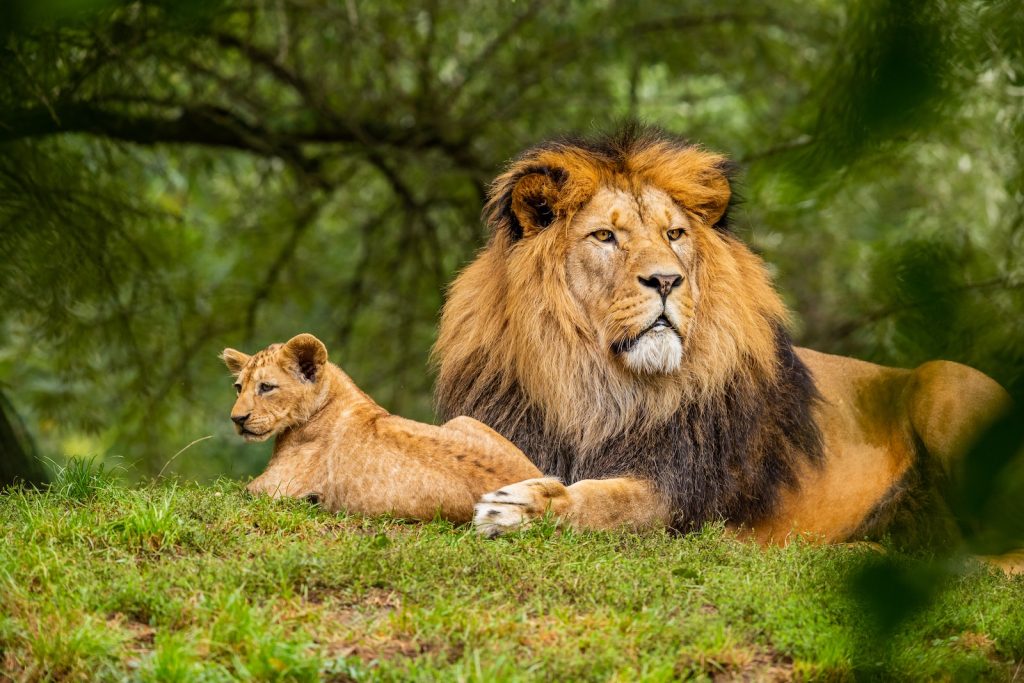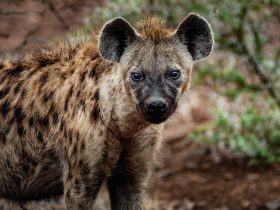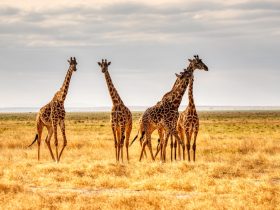Wildlife conservation is a crucial endeavor in protecting our planet’s biodiversity and ensuring the survival of various species. However, traditional methods of funding conservation efforts often fall short, leading to a growing interest in ethical investments as a means of supporting wildlife conservation initiatives. In this comprehensive guide, we will explore the concept of ethical investments in wildlife conservation, their importance, and how individuals can make informed investment decisions that align with their environmental and ethical values.
Understanding Ethical Investments in Wildlife Conservation
Ethical investments in wildlife conservation refer to financial investments made in projects, organizations, or initiatives that are dedicated to conserving and protecting wildlife and their natural habitats. These investments go beyond mere financial returns and prioritize environmental sustainability, long-term conservation goals, and ethical practices. By directing funds towards conservation projects, ethical investors actively support the work of organizations and initiatives on the ground, contributing to the preservation of ecosystems, endangered species, and the overall well-being of our planet.
The Importance of Ethical Investments in Wildlife Conservation
Ethical investments in wildlife conservation play a vital role in addressing the funding gap that exists in traditional conservation efforts. While government funding and philanthropic donations are crucial, they are often not sufficient to meet the ever-increasing challenges faced by wildlife and their habitats. By embracing ethical investments, individuals and institutions can provide a sustainable and reliable source of funding for conservation projects. These investments send a strong message that the conservation of biodiversity is a priority and can help drive positive change in the conservation sector.

Types of Ethical Investments in Wildlife Conservation
- Conservation-focused funds: These funds are specifically designed to invest in companies, projects, or organizations involved in wildlife conservation efforts. They provide investors with the opportunity to support various conservation initiatives, including habitat restoration, anti-poaching measures, and community-based conservation programs. Investing in these funds allows individuals to diversify their portfolios while making a positive impact on wildlife conservation.
- Sustainable forestry: Investing in sustainable forestry projects can indirectly contribute to wildlife conservation. Sustainable forestry practices promote the conservation of natural habitats, protect ecosystems, and mitigate climate change, which is crucial for the long-term survival of many species. By investing in sustainable forestry, individuals can support environmentally responsible practices that benefit both wildlife and local communities.
- Ecotourism investments: Supporting ethical ecotourism initiatives can generate income for local communities while preserving wildlife and their habitats. Investing in responsible tourism operators that prioritize wildlife conservation and environmental sustainability can have a positive impact on local economies and contribute to conservation efforts. This form of investment promotes sustainable tourism practices that minimize negative impacts on wildlife and their habitats, ensuring a harmonious relationship between tourism and conservation.
Factors to Consider When Making Ethical Investments
- Research and due diligence: Thorough research is essential when considering ethical investments in wildlife conservation. Investors should carefully assess the mission, track record, and impact of the organizations or projects they are considering. Understanding the values and practices of the entities involved will help ensure that investments align with one’s ethical and conservation objectives.
- Environmental impact: Evaluating the environmental impact of an investment is crucial. Look for projects or organizations that actively monitor and minimize their ecological footprint. This may include initiatives focused on reducing carbon emissions, protecting biodiversity hotspots, or restoring degraded ecosystems. By investing in projects that prioritize sustainable practices, individuals can contribute to positive environmental change.
- Social responsibility: Assessing the social responsibility of an investment is equally important. Consider how the investment contributes to local communities, respects indigenous rights, and promotes fair labor practices. Investments that prioritize community engagement and provide socio-economic benefits are often more aligned with ethical values. By investing ethically, individuals can help uplift local communities while protecting wildlife.
- Transparency and accountability: Transparency and accountability are key factors to consider when making ethical investments. Seek projects or organizations that regularly report on their progress, including financial performance, conservation outcomes, and social impact. By investing in transparent initiatives, individuals can ensure that their funds are being used effectively and responsibly for wildlife conservation.
- Sustainable practices: Investing in projects or organizations that adhere to sustainable practices is crucial for long-term conservation success. This includes considerations such as resource management, waste reduction, and responsible use of natural resources. By supporting investments that prioritize sustainability, individuals can contribute to the overall health and resilience of ecosystems, ensuring the long-term survival of wildlife.
Challenges and Risks of Ethical Investments in Wildlife Conservation
- Financial returns: Ethical investments in wildlife conservation may not always provide the same level of financial returns as traditional investments. Investors must be willing to accept potentially lower financial gains in exchange for supporting environmental and conservation causes. However, it is important to note that the true value of ethical investments lies in the positive impact they have on wildlife and the environment.
- Lack of regulation: The ethical investment landscape in wildlife conservation is still evolving, and there is a lack of standardized regulations and frameworks. This can make it challenging for investors to assess the credibility and impact of potential investments. Conducting thorough due diligence and seeking guidance from experienced professionals can help mitigate these risks.
- Long-term commitment: Ethical investments in wildlife conservation often require a long-term commitment. Conservation projects may take years or even decades to yield significant results. Investors should be prepared to maintain their investments for an extended period, understanding that conservation efforts require time, patience, and ongoing support.
- Geographic and political risks: Wildlife conservation projects can be subject to various geographic and political risks. These may include factors such as unstable political climates, fluctuating local economies, and regulatory changes. Investors should carefully assess these risks and consider diversifying their investments across different regions and projects to minimize potential impacts.
- Impact measurement and reporting: Measuring the impact of ethical investments in wildlife conservation can be complex. Investors should seek investments that provide transparent and thorough impact measurement and reporting systems. This allows investors to track the progress and effectiveness of their investments and ensures that their funds are being utilized effectively.
Conclusion:
Ethical investments in wildlife conservation offer a unique opportunity for individuals to make a positive impact while aligning their financial portfolios with their environmental and ethical values. By supporting conservation-focused organizations, sustainable forestry initiatives, and responsible ecotourism, investors can contribute to the preservation of wildlife and their habitats. It is imperative to conduct thorough research, consider environmental and social impacts, and remain committed to long-term conservation goals when making ethical investments. Together, we can protect our planet’s biodiversity and secure a sustainable future for generations to come.
































